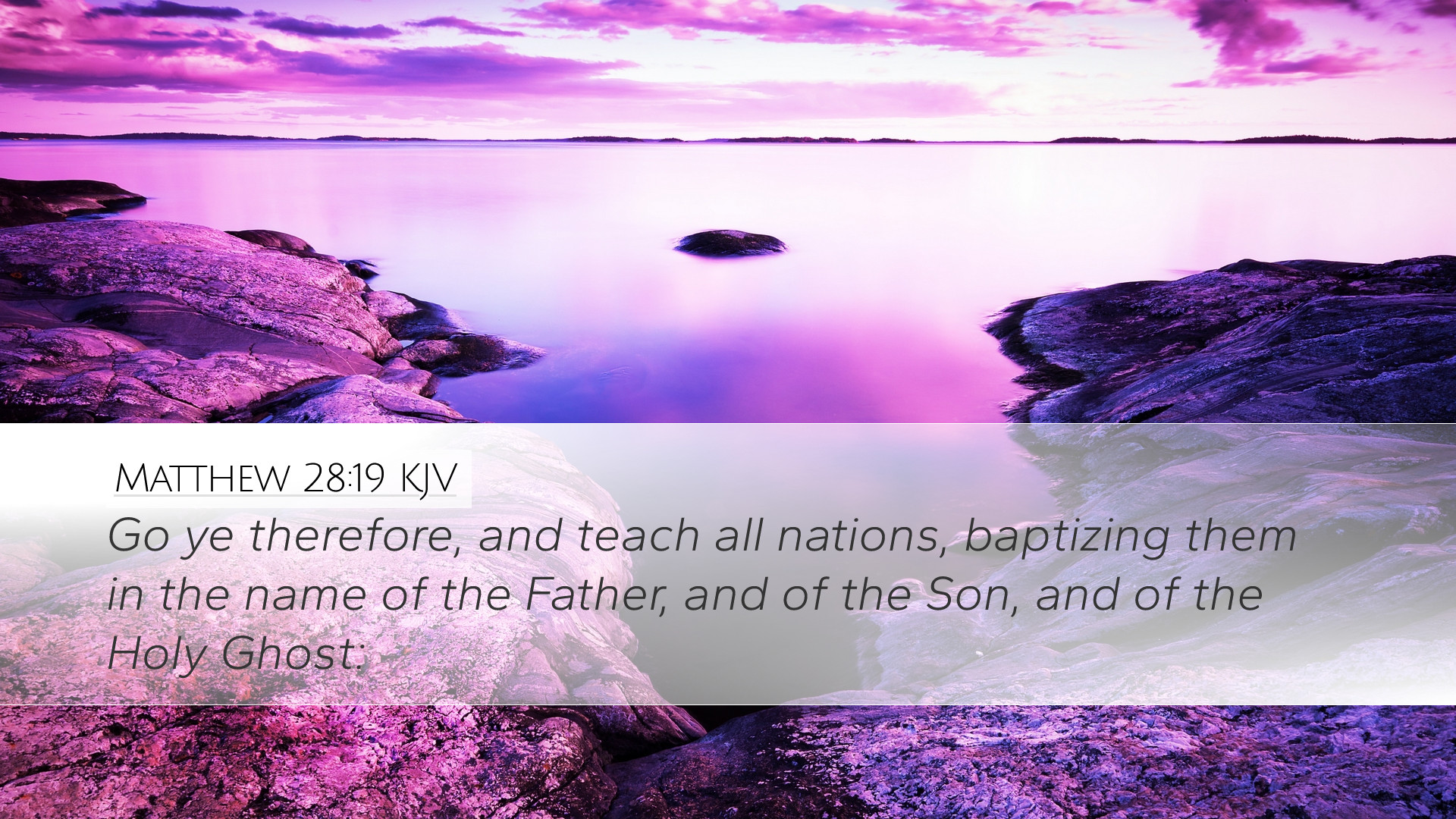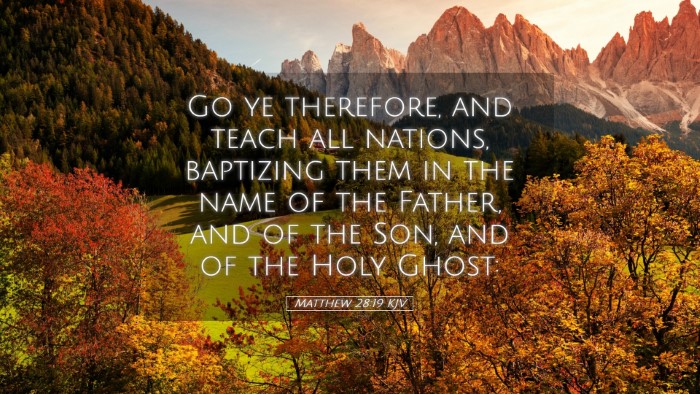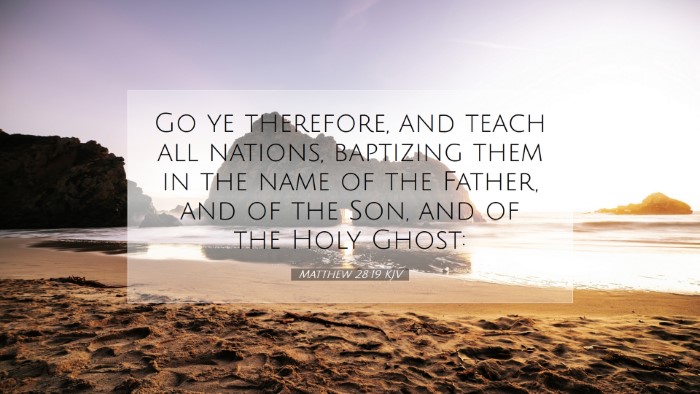Commentary on Matthew 28:19
Verse: "Go therefore and make disciples of all nations, baptizing them in the name of the Father and of the Son and of the Holy Spirit."
Introduction
This directive from Jesus, often referred to as the Great Commission, marks a pivotal moment in the ministry of the church. It underscores the universal mission to spread the gospel and the importance of discipleship and baptism as integral components of the Christian faith.
Historical Context
This command was given post-resurrection, emphasizing its significance as the final instructions from Christ to His disciples. Understanding the cultural and historical context is crucial in grasping the weight of this commission.
Matthew Henry's Insight
Matthew Henry describes this verse as a clear mandate from Christ to His followers. He emphasizes that the purpose of the church's existence is to be actively involved in disciple-making. According to Henry, the phrase "all nations" indicates the inclusivity of the gospel, transcending ethnic and cultural boundaries. This comprehensive mission is not limited to the Jews but calls for evangelism reaching out to Gentiles as well.
Albert Barnes' Analysis
Albert Barnes provides a detailed examination of each component of the verse. He notes that the word "go" serves as an imperative, indicating urgent action. The term "make disciples" (or “teach”) is rooted in the idea of a commitment to a lifelong relationship of following Christ. Furthermore, Barnes points out that the act of baptism is not merely a ritual, but a public declaration of faith, representing a believer’s association with the triune God.
Adam Clarke's Commentary
Adam Clarke adds depth by discussing the theological implications of baptizing in the "name of the Father and of the Son and of the Holy Spirit." He emphasizes the unity of the Trinity in this sacramental act, which signifies a believer's inclusion within the community of the Godhead. Clarke illustrates that this encompasses both the doctrinal aspect of faith and the relational aspect of belonging to the body of Christ.
Theological Implications
- Discipleship: This verse establishes the foundation for what it means to be a disciple—a central tenet of Christian life. Discipleship involves teaching, learning, and living out the teachings of Jesus.
- Baptism: Baptism is presented as an essential step in the journey of faith. It symbolizes the believer’s identification with Christ’s death, burial, and resurrection.
- The Great Commission: This command is a powerful reminder of the church's mission. It should inspire believers to actively engage in evangelism and discipleship in their communities and beyond.
Practical Applications
Pastors and church leaders are called to embrace and implement the Great Commission in their ministries. This involves:
- Intentional Outreach: Develop strategies for reaching diverse populations within the community.
- Discipleship Programs: Create structured programs aimed at nurturing new believers and helping them grow in their faith.
- Emphasis on Baptism: Educate the congregation on the importance of baptism as a step of obedience and public profession of faith.
Conclusion
Matthew 28:19 serves as a clarion call to all believers. It captures the essence of Jesus' mission on earth and the continuing mission of the church. Through the insights of Matthew Henry, Albert Barnes, and Adam Clarke, we see that the call to make disciples of all nations is as relevant today as it was in the first century. In embodying this commission, Christians affirm their commitment to the message of the gospel and the transformative power of the triune God.


